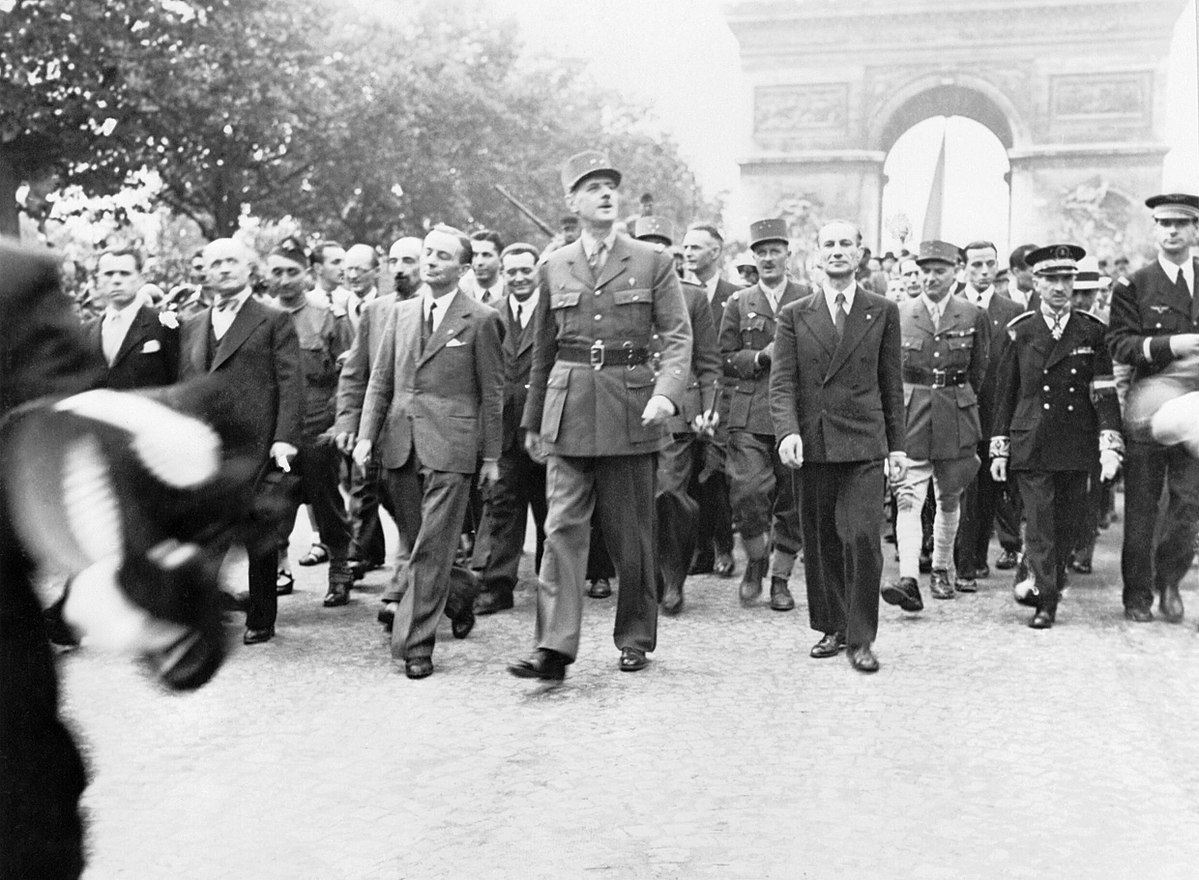There are two basic meanings of pride or of being proud.
Pride as a personality trait
The first one means a personality trait, similar to having self-respect or confidence. This is what Aristotle means when he writes about pride in his Nicomachean Ethics :
Now the man is thought to be proud who thinks himself worthy of great things, being worthy of them …
Note that, according to this meaning, pride is not necessarily connected in the person’s mind to some specific deeds or achievements. A pride like this can be expressed, for example, by saying “I am a proud person” or “Greece is a proud nation”. The word “proud” is used here as an adjective and as a personality trait and not as an emotion.
Pride as an emotion
In Psychology, pride is seen as a self-conscious emotion, meaning that it is an emotion that a person has towards or about himself. Shame and guilt are opposites of pride. All three have to do with our consciousness of how other people react to us and to our behavior. The reaction from other people can be positive or negative to different degrees. During our childhood we internalize these as values, and, as adults we are able to feel the emotion pride.
Pride is expressed in verbal constructs like “to be proud of something” and “to be proud of somebody” . The “somebody” can be your own person (as in “I am proud of myself”), but it can be some other person (as in “I am proud of my father”), or even a collection of persons, as in “I am proud of my nation”. The “something” can be some personal characteristic, as in “I am proud of my beautiful body” or “I am proud of my high IQ”. In the background is some positive achievement.
Pride has some other meanings as well, for example here and here, but I’ll focus on the above three meanings here.
The definition of “pride” that I shall use is as follows.
Being proud of “something”—e.g. of some outcome or event, the reason for the pride—is an emotion or a feeling which can arise when these three minimal conditions are fulfilled:
- you believe that the reason for the pride exists or has happened
- you value it as something positive
- you assume responsibility for it. In other words, you feel that you had a share in bringing it about or that you were instrumental in causing it.
An example: you are a student and your teacher announces that your mark in an exam is among the best in the class. Given that you don’t have any reason to assume that the teacher is lying, you believe that this is true (Condition 1). You expect that your parents and other people will be pleased by this, and, as you like it when they are pleased by things you do, you value your high mark as positive (Condition 2). Furthermore, you know that you haven’t cheated during the exam, and that the high mark is the result of your hard work preparing for the exam (Condition 3).
There might be some additional conditions for triggering the feeling of pride, but I’ll take only the above three into consideration here.
Justified and unjustified pride
Note that your pride can be more or less realistic or justified: the fact that you feel the pride doesn’t necessarily mean that it is justified.
In this respect a feeling of pride is not different from emotions like fear or anger. Take the example of fear. Your fear is justified if it is triggered by an encounter with a grizzly bear in an Alaskan forest. Your fear is most probably unjustified if it is triggered every time by standing in the middle of a large square in a city—an irrational, unjustified fear like this is called a phobia. In this case it is agoraphobia.
The conditions of justified pride follow from the conditions of the pride itself, as mentioned above. Remember, pride is a feeling. How justified your feeling of pride is, depends on how each of the conditions of your pride actually corresponds to something in reality.
Thus, your pride is justified if these three Conditions are satisfied:
- the thing or event which is the reason for the pride actually exists or has taken place. In other words, the belief that it exists or that it has taken place is true
- it is actually a positive thing
- you actually had a share in bringing about that positive thing, that is, you were partially or fully responsible for it. The amount of pride should correspond to the level of responsibility
Pride is unjustified if either of the above Conditions of justified pride is missing. Pride is partially unjustified if either of the Conditions is only partially fulfilled.
Examples of unjustified pride
An example of unjustified pride when Condition 1 of justified pride is missing is the pride that many Arabs feel when they talk about the 1973 Yom Kippur war against Israel: they feel very proud that they have won that war. One reason for this pride is that official propaganda, both in Egypt and in Syria, insists that the Arabs achieved victory in that war. There is a panoramic museum of sorts celebrating that “victory” in Cairo, Egypt. A similar museum exists in Damascus, Syria.
Arab pride is unjustified in this case because in reality there was no victory by the Arabs in the Yom Kippur war. In fact, reality was almost the complete opposite of that: after initial gains by the Egyptians and Syrians against Israeli forces, the Israelis were winning on both the Egyptian and the Syrian front. At the end of the war Israeli forces were on Syrian territory, at 40 km distance from Damascus, being able to shell its outskirts. On the Egyptian front, the Israeli forces had crossed the Suez canal, were some 101 kilometers from Egypt’s capital, Cairo, and occupied 1,600 square
kilometers of Egyptian territory west of the Suez Canal. The Israelis completely encircled the Egyptian 3rd Army on the Sinai peninsula, the destruction of which—and a complete Israeli victory in the war—was only prevented by the intervention of the USA, the Soviet Union, and the UN which enforced a cease fire.
Note that unjustified pride like this can be the result of knowingly, consciously lying. But this doesn’t have to be the case: other psychological mechanisms, like cognitive dissonance, can be responsible for claiming that the achievement, the supposed reason for the pride, was real.

The included YouTube video below shows an example for pride which most people would presumably call unjustified for the reason that Condition 2 was missing. The video shows an interview on Hamas TV with released female Hamas terrorist Ahlam Tamimi. She participated in the suicide bombing of the Sbarro pizza restaurant in Jerusalem in 2001. She scouted the situation at the restaurant and led the suicide bomber to there. 130 people were wounded and 15 civilians were killed, including 7 children and a pregnant woman.
In the interview, Ahlam Tamimi shows obvious pride about the “success” of the suicide bombing. For her, the outcome of her action—killing 15 Israeli civilians, half of them children—was positive. For most other people this outcome would be completely awful and thus they would see her pride as sickeningly misplaced and unjustified.
An example of unjustified pride when Condition 3 is (partially) missing is the pride nurtured in the French people by its leaders during and after the Second World War about Paris having “liberated itself” from the Germans in 1944. There indeed was an uprising in Paris against the Germans in August 1944. This did play a role in the liberation of Paris, but the claim that Paris liberated itself—without even mentioning the role of the Americans and of the British, as the French leader De Gaulle did when talking about the event—is falsely assuming full responsibility for that achievement. Thus, in this case some pride is justified, but only to the limited extent that the Paris uprising played in the liberation of Paris.

Here, too, conscious lying can be behind the claim of the unrealistically increased responsibility for the achievement. But again, other psychological mechanisms can create such a claim as well (among them the already mentioned cognitive dissonance).
Note that these examples also demonstrate some difficulties and complexities with the Conditions of justified pride.
More about the Conditions of justified pride
Condition 1—the belief that the positive thing exists or that it has taken place is true —has the problem that “truth” can have varying degrees: the belief can be partially true or partially false. In the first example, the Arab armies were indeed victorious in some battles during the initial phase of the Yom Kippur war. Thus, the statement “Arabs were victorious in the war” can be seen as partially true, if one takes the statement literally: they were indeed victorious during part of the war, that is in its initial phase. But of course “victorious in a war” normally means you win the end phase of the war (otherwise, one could state, absurdly, that “Germans were victorious during World War II.”) and in this sense the belief that Arabs won that war is completely false.
The value judgement in Condition 2—judging the thing or event as “positive”—is by its nature subjective. The second example shows this: while the bombing of the Sbarro restaurant was a highly positive event for Ahlam Tamimi and for many Palestinians, it was a highly negative event for Israelis and for many other people in the rest of the world.
Condition 3—you actually had a share in bringing about the positive thing—has the difficulty that there can be grades of actual responsibility. The third example shows this. Pride is justified only if its magnitude corresponds to the actual responsibility: small pride for small actual responsibility for a positive thing, large pride for large actual responsibility.
Thus, a “false” or unjustified pride can be easily created in the mind of a person if one or more of the Conditions for justified pride have some of the above complexities. The more complex, for example, is to determine actual responsibility for an event, the easier it is for a false pride to appear.
Being proud of your nation, culture, race, etc.
Note that the first example for unjustified pride mentioned above is already about national pride. The third example is also about national pride.
But how could pride be justified in these cases at all, given that the people mentioned in the examples —Egyptians and Syrians in the first example and French in the second one—might not have had a direct share in the supposed achievement?
What about being proud of your culture, religion or race? Many people express pride in these, but how can it be justified?
And what about being proud to be gay? We know that it is possible (see the Gay Pride Parades), but how can something like this be justified, given the definition of pride above?
Discussing these questions will be the topic of later parts of this series.
Literature
Tracy, J.L. & Robins, R. W. The Psychological Structure of Pride: A Tale of Two Facets. Journal of Personality and Social Psychology, 2007, Vol. 92, No. 3, 506–525.
To be continued
